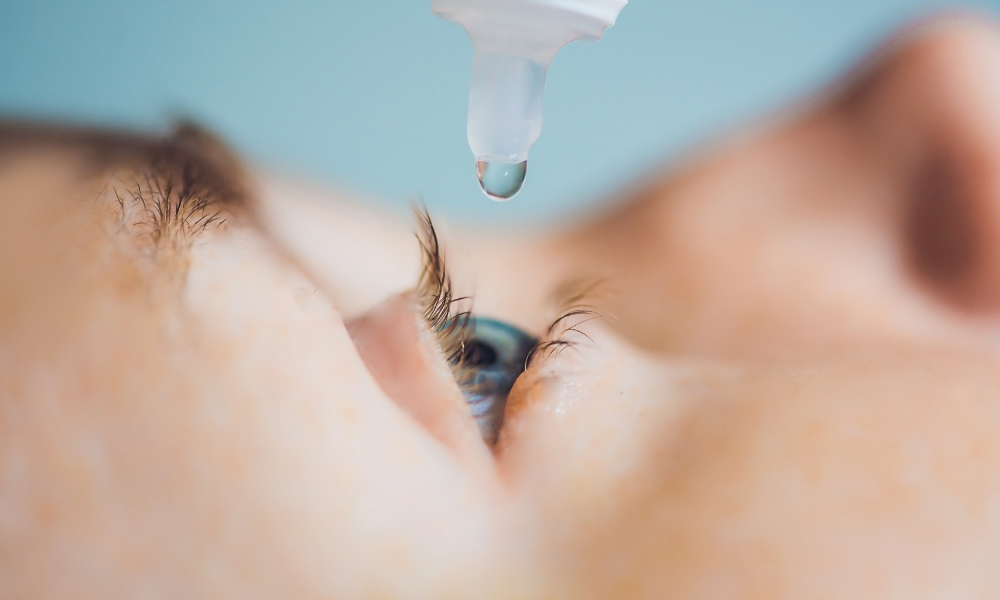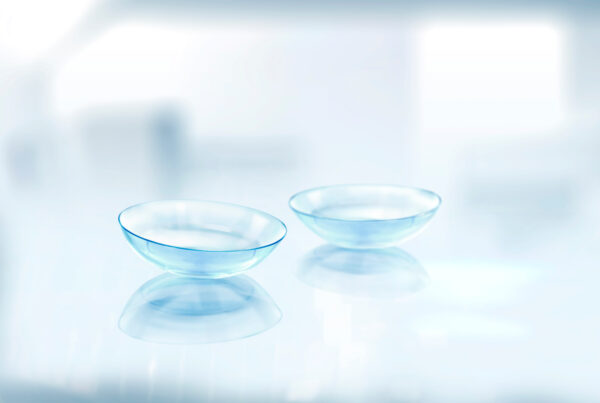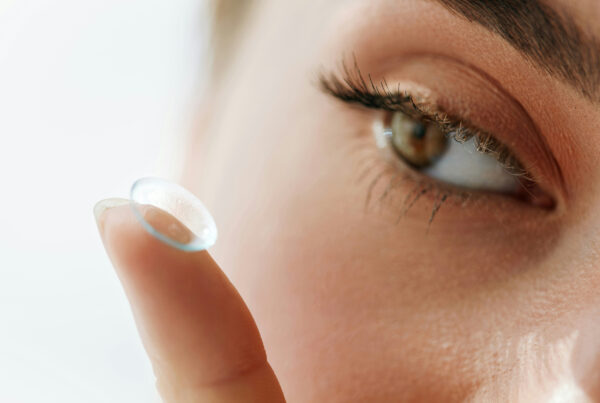
At your recent eye exam, your eye doctor may have voiced to you that you have signs of dry eye. And you may even feel the symptoms—irritation, burning, redness, discomfort, and even wateriness. Dry eye can often be managed with a simple routine. What do you do if your eyes feel dry? Moisten-your-eyes of course!
Artificial tears, warm compresses, eyelid scrubs, and possibly some vitamins are a good start and usually help ease the symptoms. But if left untreated, how serious can this seemingly minor issue get? Turns out, pretty serious if you value your sight. If the underlying issue isn’t addressed, chronic dry eye can lead to permanent loss of the glands that produce oil for your tears, and possibly even sight loss due to corneal scarring.
Dry eye is a problem with many contributors that may be challenging to distinguish. Both moisture and lubrication are required for your tear film to be stable. Older individuals, those with autoimmune conditions or taking certain medications, and contact lens wearers may not produce enough water for their tears leading to issues with moisture. Tears also contain antibodies, which are powerful fighters against germs that can infect your eye. If you have less tears, there are fewer antibodies available to protect your eye from infection and the dried out ocular surface may have tiny cracks helping these microbes invade the tissue of your cornea. Infections can cause sight-threatening complications such as corneal ulcers that scar what you need to see through. Think of your cornea like the windshield of your car. When it’s covered in dirt and debris, it causes major blur and glare making it uncomfortable and difficult to see. I don’t know about you, but even the tiniest speck of dirt on my windshield drives me crazy!
Aging and skin conditions like rosacea may may cause issues with the oil being released from the glands in your eyelid, causing a lack of lubrication. Even extended time looking at TVs computers, and cell phone screens can be a major cause for dry eye problems. You blink far less staring at screens, and the oil that is usually released by your eyelid glands when you blink is not replenished. A similar process occurs with aging and rosacea. These glands may become clogged and inflamed over time resulting in tears that overcompensate for the lack of oil and may be watery. These watery tears tend to fall onto your cheek rather than stay on your eye. If clogged for too long, the tear glands themselves may shrivel up and lose function completely. After this happens, there is no getting it back. Your glands can no longer produce oil and if this happens to a significant number of glands, your tears will not have the lubrication they need to stay on the surface of your eye. A car engine that requires oil and gasoline is similar to your eye needing oil and water. You can run the engine without oil, but it will be ruined eventually.
Dry eye can come from your health problem, medications you take, your activities, or even the environment you live or work in. Your eye doctor can help determine the root cause of your dry eye with a variety of specialized tests— and knowing the cause is essential in developing a dry eye treatment plan to best combat your signs and symptoms and avoid permanent damage.



